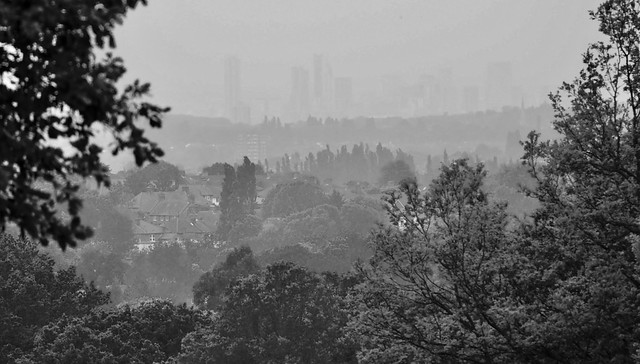The lockdown might have flattened the curve of infection and death, but it has also flattened the curve and swell of life. Existence has shrunk to fit within four walls; life ‘outside’ has largely been compressed within the flat rectangles of my phone and computer screens.
You might think that, as an academic, I would revel in the life of the mind, the kind many of us now have to accept whether we like it or not. And I do, normally. It has been no great inconvenience to me to continue working from home, but while I still go to work every day, I am no longer going out to work. The daily plunge into the noise and grit of London amid the press of my fellow commuters, the cut and thrust of meetings and lectures, the faces and places of the university campus – all these things have fallen away. Instead each morning after breakfast I climb the stairs to our small spare bedroom. A home office that I would use occasionally on the weekend has become my daily retreat, wherein I commit to a timetable of days that feel long and weeks that seem short.
Outside of work I have time for reading, for dipping into box sets on TV, and for the occasional ‘trip’ to the theatre. My wife and I have enjoyed the National Theatre’s online programme, sometimes joining with friends for drinks over Zoom before the show and at the interval. We keep in touch with family and friends through messaging and video calls. It is odd to think how a technology that only a few years ago seemed the stuff of science fiction has become such a commonplace. That facility is not available to my parents, however, who are secluded in a nursing home and a fog of fading memories; to them I write letters.
So, there is no shortage of activity and yet it feels like inactivity. All attempts to look outward seem to direct the gaze inward. We need the colour and commotion of the real world to move us out of ourselves. Without it the palette of life shades into monotony. When at the start of each video call people ask how it’s going, I can only think to say how boring life feels.
And yet, I am among the lucky ones. Across the country the virus’s pitiless bill of death and grief has had to be paid many thousands of times over, but it has not yet landed at my door. For many more people, even if death has not wrenched away family and friends, the lockdown has cost jobs and livelihoods. Although the government’s support schemes offer them some mitigation, the fears of an uncertain future must surely tighten the strains of confinement and privation. I have some small share in that uncertainty but can be reasonably confident that my university job is safe. I have family around me – there are four of us in this household and we rub along well for the most part; the wrinkles that trip us up from time to time are only small.
Even so, I don’t really know just how lucky I am. Social distancing extends far beyond the two-metre limit imposed on encounters in the park or at the supermarket and has long been a feature of our segregating society. For those of us who enjoy a comfortable existence, it is an effort to access the crueller experiences of people who do not. That effort is harder still when self-isolation is national policy rather than a habit acquired in the rush through modern life. Which is not to say that it is impossible. There is no shortage of news or commentary and I do not intend to add much to the latter here, not today at any rate. But the coronavirus pandemic has unpicked our pretensions at equality, disproportionately targeting black or minority ethnic people, shredding the lives workers for whom a full-time job is not enough to pay the bills, stalling the lives of the young, and dumping the burden of care for children and the elderly where society still thinks is its natural home: the backs of women.
Already I see that my attempts to look beyond my own circumstances are driving me to broad generalisations. I can’t speak for everyone or every situation and it is perhaps foolish to try. For the time being, life feels suspended and detached. It might provide time for reflection, but I remain unsure of my grasp. For now, it must suffice to try to keep the bigger picture in view and seek out the stories of others. The pandemic has separated us out, but it has also heightened awareness of our common humanity. This virus crosses borders far more easily than our politics has ever done. Even if some leaders are using it to stoke the flames of nationalism, I hold to the hope that many among us will see the hiatus as a time of preparation, so that when the moment comes to re-engage – as surely it must – it will be with renewed new vigour and purpose.






